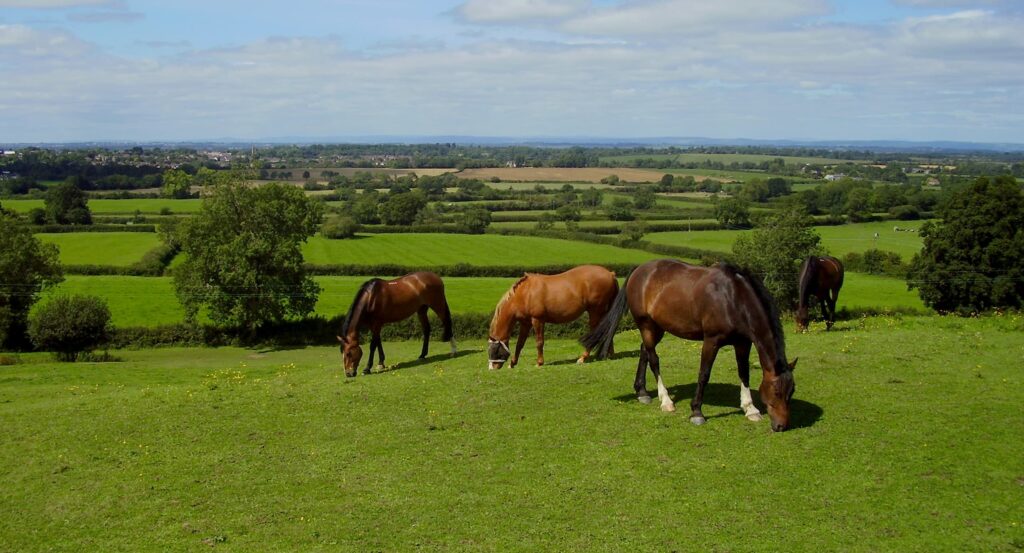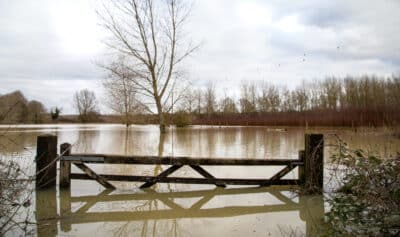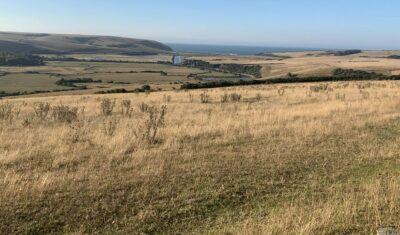Daily Management, Sustainability
Why your horse cares about climate change
Ruth Dancer, Director at environmental sustainability specialists White Griffin Ltd, asks ‘why do horse owners need to think about the effect of climate change on their horses?’
For decades, scientists have been warning us about the impact of environmental destruction on humans, but how many of us have stopped to think about what our actions are doing to the welfare of our horses?
In recent years, it has become obvious that changes in our weather systems are impacting our horses’ health and behaviour. In the UK just in the last two years, several records have been broken including:
- The warmest year on record
- The first time 40 degrees centigrade was breached
- The hottest June on record
Climate change is with us NOW and we know that these extreme weather events will worsen.

All horses are at risk during these extreme weather events, perhaps most significantly when there is a sudden, unseasonable temperature fluctuation. Tragically, this was seen at a Cheltenham race day in April 2018, which had to be cancelled following the death of a horse suffering from heat stroke¹.
As part of the ecosystem, horses are vulnerable to the increased frequency and ferocity of weather spikes in a number of ways. We know from experience and research that horses do not adapt quickly to changes, which is why when competing overseas they have several days to acclimatise prior to any event. However, when we have sudden temperature spikes in the UK there is no chance for horses to adapt and their health is compromised.
And it isn’t just high temperatures that are a threat – who can forget the harrowing images of horses trapped in stables during the violent fires in California in 2017² along with ever increasing worldwide flooding and dangerous storms – all a consequence of human induced climate change.
In addition to this the Equine Infectious Disease Surveillance (EIDS) team, monitor the threat of vector borne exotic diseases that have not yet reached the UK equine population, along with outbreaks of equine influenza, strangles and other diseases endemic to our island. Due to climate change, the risk is increasing that these exotic diseases will travel to our country and create significant issues for the equine population – there will be more in this series on these.
The risks to horse welfare due to our changing climate are very sobering and impact our horses NOW. However, there is an indirect risk to which horse owners are becoming increasingly aware, as the global picture shifts dramatically year on year.
Horses in the UK are dependent upon a strong agricultural sector, both in the UK and Europe. The changes in weather patterns across Europe mean that farmers have struggled to produce crops in the volumes of the past. As an example, one farmer in the UK who would normally produce 100,000 bales of straw, was only able to produce 68,000 in 2023, all of which were poorer quality due to continuous and unseasonable rainfall. With land use at a premium and the production of vital equine supplies depleted, both scarcity and prices are on the rise for horse owners, as farmers and horse owners try to navigate extreme weather conditions.
Environmental sustainability is a complex topic covering a wide range of themes and challenges, all of which differ around the globe. However, what we can be certain of is that our horses are as much at risk as we are. We need to put in place both plans to reduce our own negative impacts on the environment, and preparations to safeguard the welfare of our horses in the face of climate change.
The environmental vision published by British Equestrian in December 2023, summarises six commitments made by the Federation and its member bodies; first on the list is “we aim to protect horses against the negative consequences of the changing environment”, placing horse welfare and the environment front and centre of future strategies. It will be interesting to observe how the industry tackles this challenging topic on behalf of our horses, in the meantime, horse owners can play their part by:
- Knowing how to care for horses during heat waves and sudden spikes in temperature
- Playing your own part in restoring nature by understanding and reducing your impact on greenhouse gas emissions and biodiversity loss
The free to use equine carbon calculator, produced by Farm Carbon Toolkit, White Griffin and a collaboration of equine academic institutions, will shortly be available for all businesses and can support equestrians in playing our part in minimising the worst impacts of climate change.
There will be more in this series on how to help your horse cope with sudden temperature spikes and how by making small management changes, horse owners can help combat climate change.
Further reading: Vector borne diseases
About Ruth and White Griffin Ltd
REFERENCES
[1] https://www.theguardian.com/sport/2018/apr/19/horse-dies-cheltenham-race-abandoned-heat-racing
[2] https://www.theguardian.com/us-news/2017/dec/08/horses-burn-death-california-wildfires-los-angeles-creek-blaze


